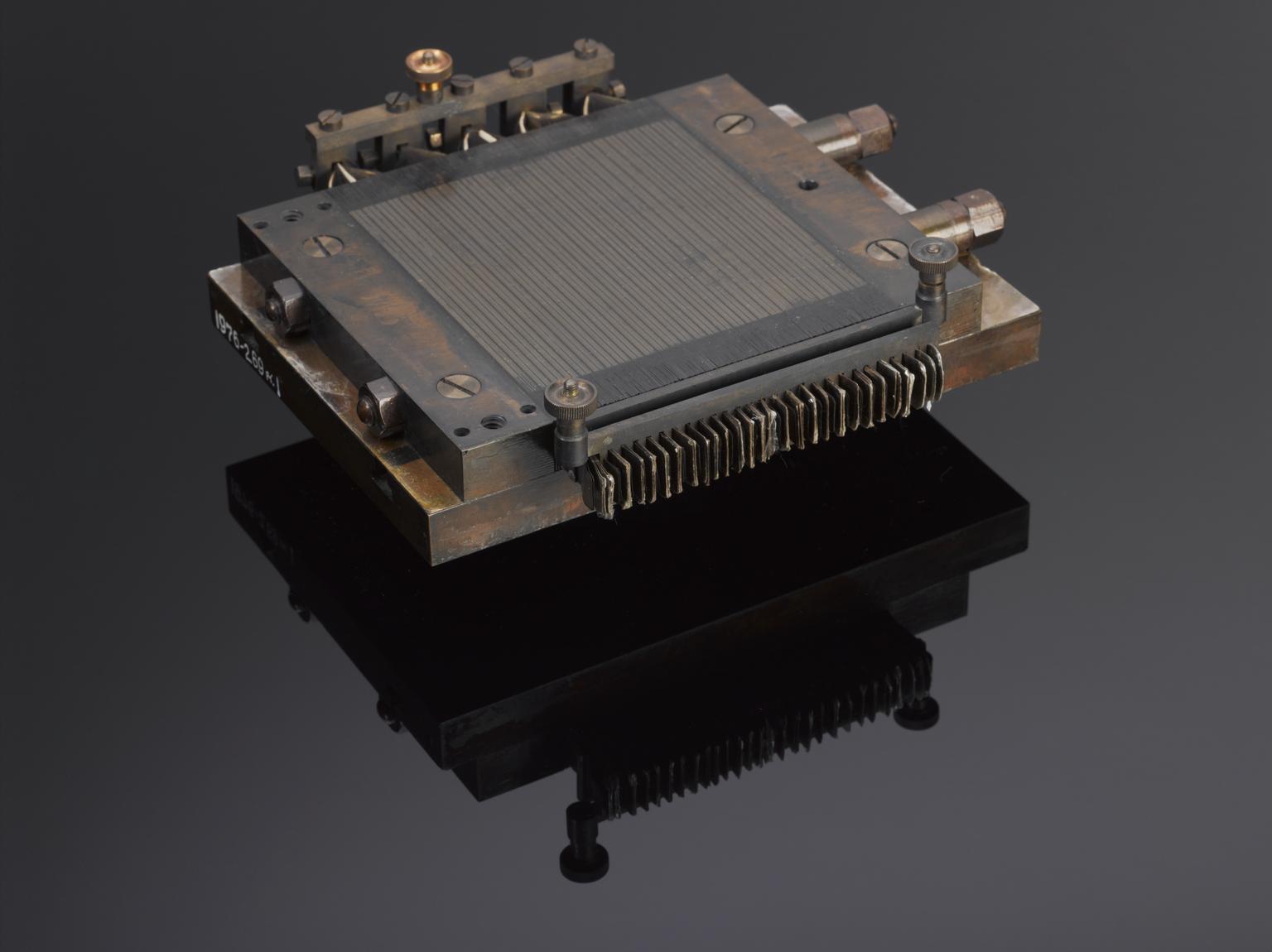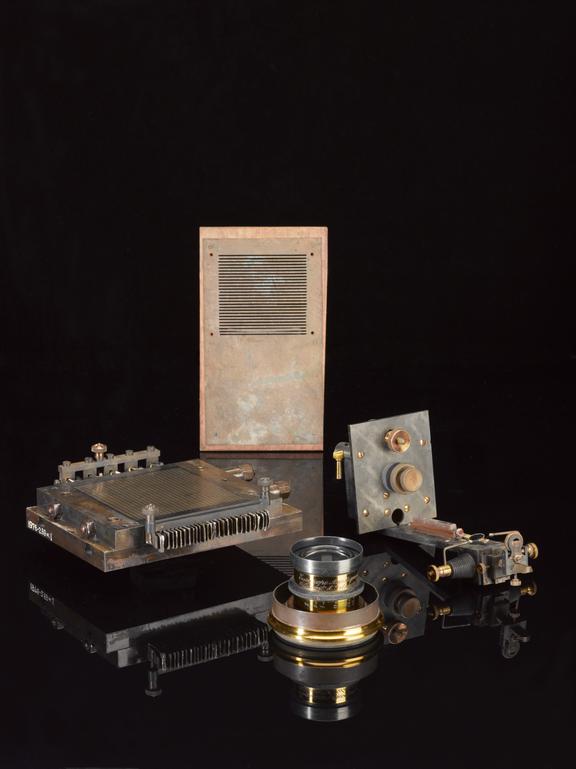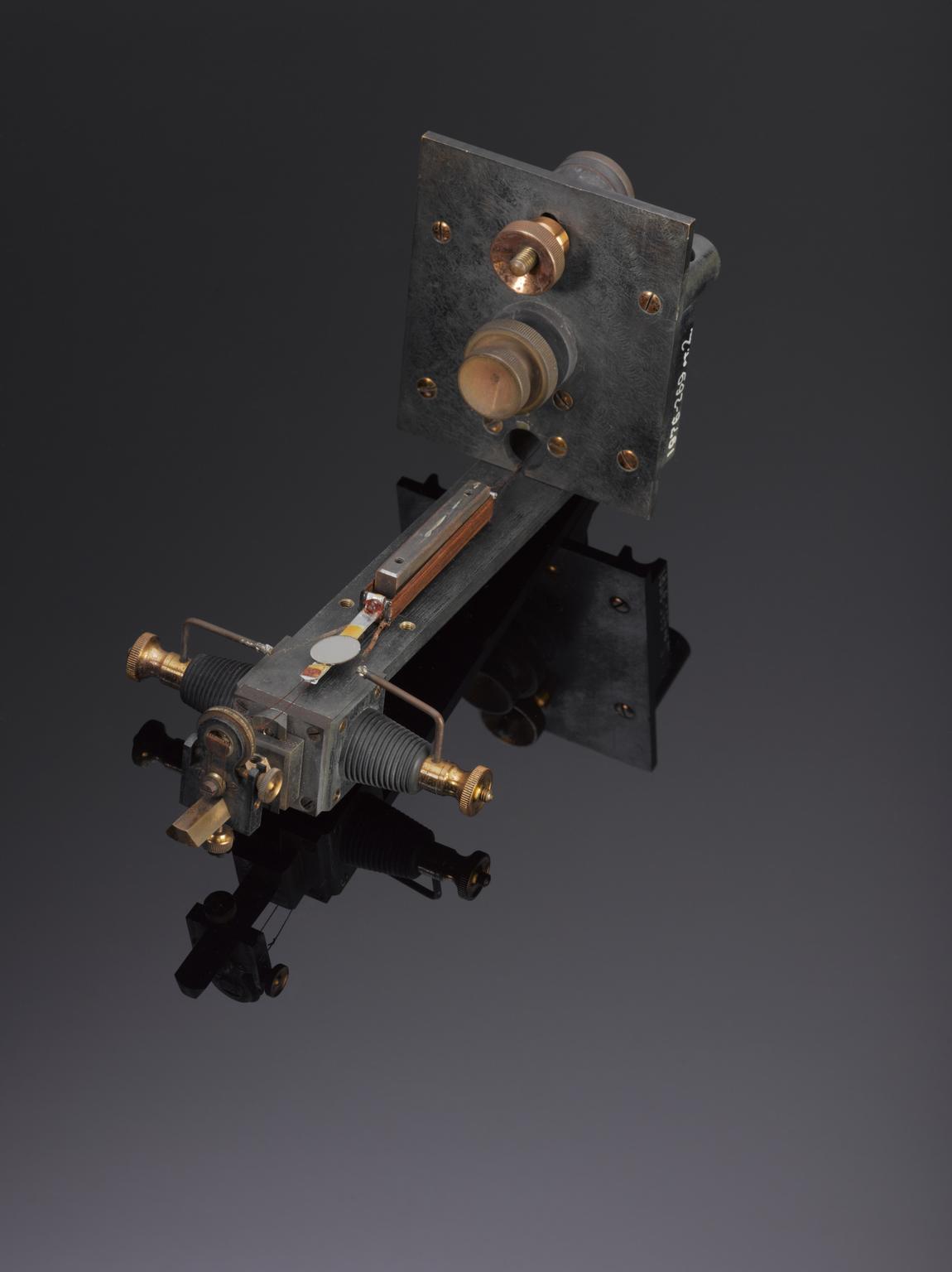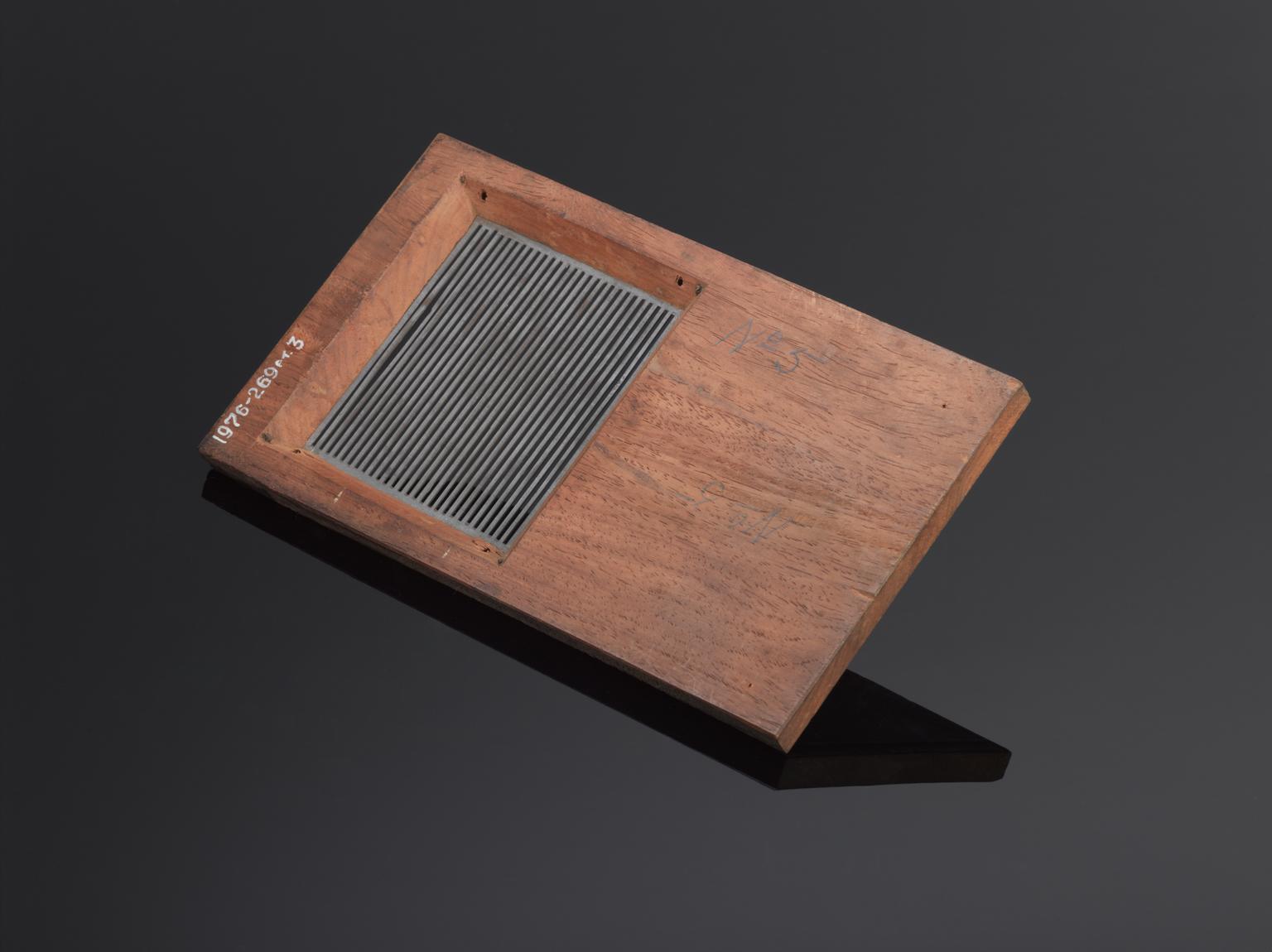
Selenium cell from prototype Cox selenium-cell magnifier equipment, 1910-1920
Selenium cell No 5 from prototype Cox selenium-cell magnifier equipment, possibly made by Kenwrick Cecil Cox, 1910-1920.
This is part of a magnifier invented by Kenwrick Cecil Cox, a British engineer who worked in a cable station in the Pacific ocean, on the Pacific Telegraph Cable. The purpose of the magnifier was to cut out the expensive and arduous task of re-sending messages that passed through the cable station on their way to other destinations. This was required because the signals lost clarity over distances of hundreds of miles, meaning that the only way for the messages to reach their destination was for operators to resend the messages manually when they passed from one length of cable to another. The magnifier boosted the signal strength and clarity. The regenerated signal was then suitable for perforating a new tape, or could be transmitted directly. These components are parts of the development prototypes made by Cox, largely in his spare time while working at various cable stations. The production version was in widespread use for over a decade.
- Measurements:
-
overall: 50 mm x 180 mm x 191 mm, 4 kg
- Materials:
- copper (alloy) and metal (unknown)
- Object Number:
- 1976-269 Pt1
- type:
- battery










